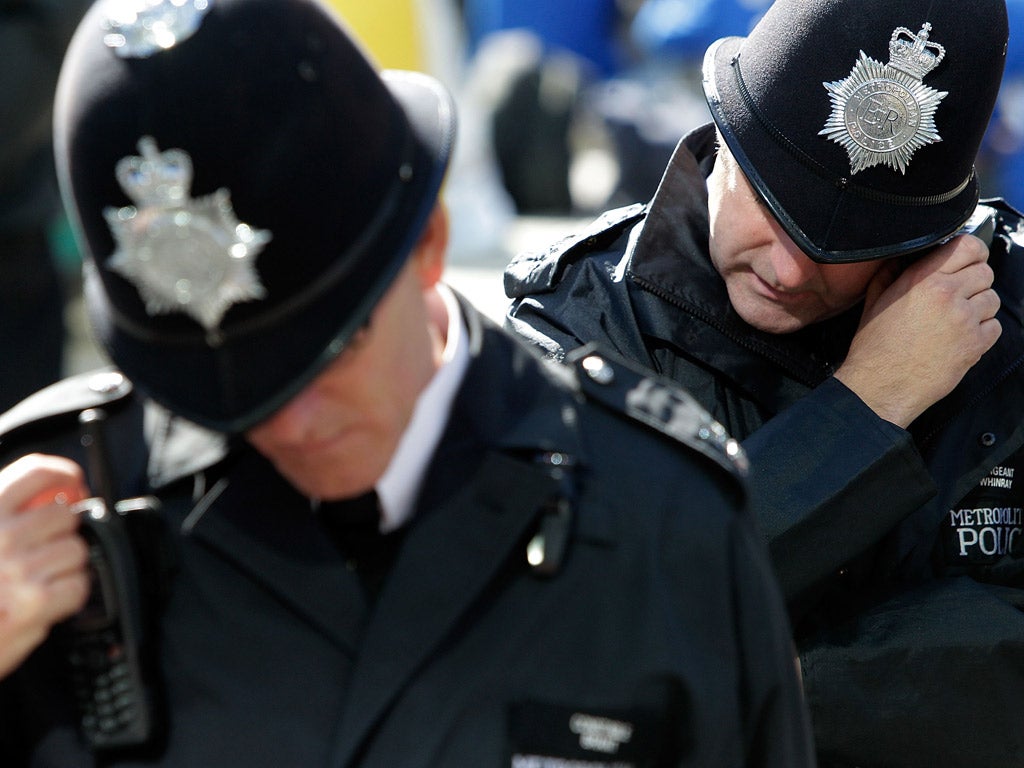Young people in this country don't trust our police
With a very different sense of geography on our streets, Britain's young people don't share the feeling that more bobbies on the beat means safer streets

Your support helps us to tell the story
From reproductive rights to climate change to Big Tech, The Independent is on the ground when the story is developing. Whether it's investigating the financials of Elon Musk's pro-Trump PAC or producing our latest documentary, 'The A Word', which shines a light on the American women fighting for reproductive rights, we know how important it is to parse out the facts from the messaging.
At such a critical moment in US history, we need reporters on the ground. Your donation allows us to keep sending journalists to speak to both sides of the story.
The Independent is trusted by Americans across the entire political spectrum. And unlike many other quality news outlets, we choose not to lock Americans out of our reporting and analysis with paywalls. We believe quality journalism should be available to everyone, paid for by those who can afford it.
Your support makes all the difference.We have a system of policing by consent in this country which is important to preserve, but the many of the next generation are growing up with a mistrust of certain sections of the police. Young people are often the victims of violent crimes and we need them to have confidence in the police if those crimes are going to be reported and dealt with effectively.
After looking into this issue and speaking to many young people, it’s obvious to me that the many surveys that show the Metropolitan Police Service has a trust problem with young people are especially true in London. After visiting several projects that engage with young people across London, I published a report last week looking at how the Met can gain the trust of young Londoners.
False consensus
Police cannot do their job unless people report crime. Young people are now so distrusting of the police that many would not report a crime, regardless of whether they were the victim or a witness because they do not think the police would do anything. The young people I spoke to at a school in Southwark not only said they would not report the theft of a mobile phone to the police, but they laughed at the suggestion.
We are told the overwhelming consensus is that more police on the streets makes people feel safer. That is why the Mayor and government repeatedly talk in terms of police on the streets. However, this consensus seems to be to the exclusion of young people who reported feeling less safe when they see police on the street. In some cases it made them fear a friend of theirs may have been hurt or killed or in trouble. Young people told me when they see police on the streets they are “just standing there” and not doing anything – a perspective that is rarely part of the debate on policing.
I was struck by how the young people I spoke to have a completely different sense of geography in terms of where they thought of as safe to go compared to adults. Young people at a school in my local area named places I consider completely safe as areas they wouldn’t go near out of fear they could become the victim of crime. When I asked if putting more police into the specific locations they thought of as dangerous would make them feel safer, I was surprised that the response was an overwhelming ‘no’. This is vital information the police need to be aware of if they are to do their job.
Young people referred to the Territorial Support Group – the Met’s specialist team that responds to public order and supports the boroughs – vehicles as “bully vans” and made a distinction between the local neighbourhood police that they knew and the Territorial Support Group. However, despite making this distinction I repeatedly heard how this team has a negative effect on other areas of the police. This one team appears to exemplify the problems between young people and the police. That is why I have recommended that this team either be scrapped – using the money to train neighbourhood officers to a higher level – or that this group be prioritised for compulsory training on working with young people.
Simple
Despite the problems I found between the police and young people there are some simple things they can do to improve things. If police officers are expected to respond to the needs of young people then they should receive training in how to work with young people.
The police must acknowledge the differences in adult/young peoples’ perceptions. I see local police patrolling and feel safer, young people feel more vulnerable. Places I feel are perfectly safe for an older woman to walk at night, they regard as dangerous. I see a police van and I’m curious, they see the TSG as a van load of bullies.
The police need to be embedded in the communities they serve and should work with community groups and schools. The police need to increase the amount of positive interactions they have with young people and to become part of the furniture of their lives, rather than the people who stop and search them. It is essential that young Londoners trust the police if we are to improve confidence and prevent crimes. It will take work from both the police and young people to improve the relationship between these two groups, but the Met can’t police London properly without that effort.
Join our commenting forum
Join thought-provoking conversations, follow other Independent readers and see their replies
Comments